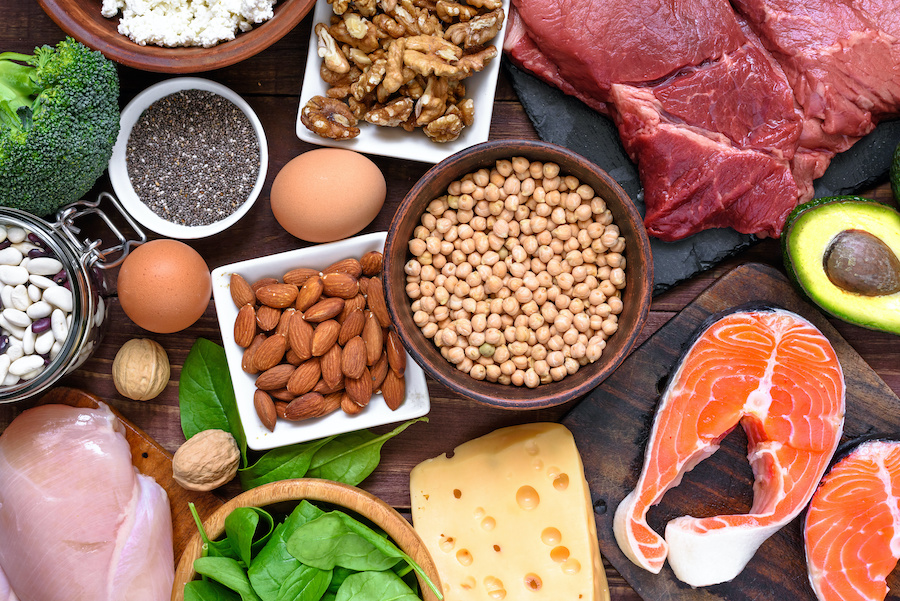
All About Protein From a UW Registered Dietitian
Dietary Protein is one of the most important topics when it comes to your physique and making improvements to it. Whether you’re trying to lose weight, gain muscle or stay strong and healthy as you age, protein is vital. Protein supplements, fortified foods and beverages are popping up everywhere, and foods already rich in protein are gaining attention. While there are certainly benefits to including more protein in your diet, there are lots of myths and misconceptions about protein that make it nearly impossible to tell fact from fiction.
We asked Lisa Messerli, a Registered Dietitian from Harborview Medical Center and Dietetic Intern Dorothy Nguyen to weigh in on their thoughts.
What is protein and what does it do for your body?
Proteins serve as the building blocks for your body. They power thousands of different chemical reactions that help to keep your body functioning. For example, some proteins build muscles, others repair tissues, and some help to transport oxygen in your blood.
Proteins can also serve as a source of energy. It is important to make sure you are getting enough protein in your diet so that your body has all of the building blocks that it needs to run smoothly.
How much protein do we need on a daily basis?
The amount of protein that you need can vary based on your age, gender, activity level, and health status. The DRI (Dietary Reference Intake) for healthy adults is 0.8 grams of protein per kg of body weight per day, which can translate to roughly 20-30 grams of protein per meal depending on your weight.
However, older adults, adults with certain chronic conditions, or very active individuals may require 1-2 grams of protein per kg of body weight.
Is it true that we can only get adequate protein from meat?
No, protein can come from both animal sources and plant sources. It is possible to follow a vegan or vegetarian diet and meet your protein requirements. However, plant-based proteins often don’t contain as much protein per serving as animal products like chicken or pork.
| Food | Amount of Protein |
| Chicken (3oz) | 21 g |
| Ground beef or steak (3 oz) | 21 g |
| Tuna or fish (3 oz) | 21 g |
| Beyond Burger (plant based) | 20 g |
| Peanut butter (2 TBS) | 8 g |
| Milk (8oz) | 8 g |
| Greek Yogurt (8oz) *brands can vary | 8-20 g |
| Eggs (1) | 6 g |
| Beans or lentils (1/2 cup cooked) | 6-9 g |
| Nuts (1 oz) | 4-6 g |
| Tofu (1/4 cup) | 5 g |
| Oatmeal (1/2 cup dry) | 3 g |
What are some good sources of protein?
There are many great sources of protein. If you eat meat, choose lean meats such as chicken breast, turkey, or fish. Lean meats are high in protein and low in saturated fats, meaning that they will fuel your body and protect your heart health. Eggs are also a great source of protein and recent research shows that they actually do not increase your cholesterol.
If you follow a plant-based diet, beans are a great source of protein that also contain a lot of fiber to support your gut health. Other plant-based proteins include tofu, nuts, seeds, yogurt, cheese, lentils, and peanut butter.
The Whole U is proud to work with UW Medicine and the Nutritional Sciences Program at the UW School of Public Health to inform our eating well articles.